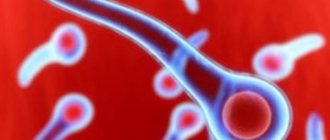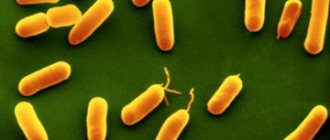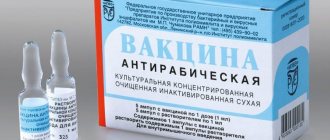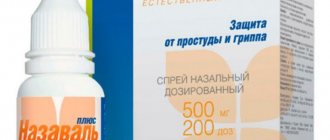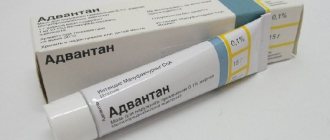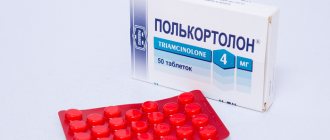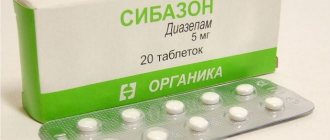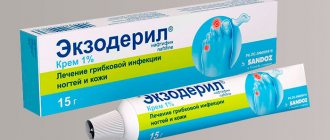"PREVENAR" - vaccination against pneumococcal infection
Pneumococcal polysaccharide vaccine, conjugated, adsorbed, thirteen-valent
Manufacturer: Wyatt Holdings Corporation, USA.
Protects against diseases: neumococcal infection.
Used: in children under 2 years of age. Revaccination at 4, 6 and 12-15 months
Included in the national vaccination calendar.
Advantages of the Prevenar vaccine
Prevnar (Prevnar 13, PCV13, Pneumococcal, pneumococcal conjugate) is a high-quality vaccine produced in the USA by Wyeth Pharmaceuticals Inc. and registered in Russia, which helps protect a child from 13 strains of pneumococcal infection (Streptococcus pneumoniae strains 1, 3, 4, 5, 6A, 6B, 7F, 9V, 14, 18C, 19A, 19F and 23F), causing diseases such as pneumonia, bronchitis, meningitis and sepsis.
- Invasive pneumococcal infection can cause brain damage or even death. Prevenar 13 may help protect children. Vaccination today is a safe and economically feasible method of preventing the development of infections. The vaccine is also approved for children 6 weeks to 5 years of age to prevent otitis media (an ear infection) caused by 7 of the 13 strains. The vaccine also stimulates the immunity of the mucous membranes, which leads to a decrease in nasopharyngeal bacterial carriage.
- Vaccination can be given to infants starting at 2 months of age (as directed by a doctor from 6 weeks) with booster vaccinations at 4, 6 and 12-15 months to create effective immune protection against the most common types of pneumococcal bacteria.
- Prevenar is not 100% effective and will only protect against the 13 strains included in the vaccine. It helps the body develop natural defenses, promoting the development of immunity to diseases. Like some other vaccines, it is given in 4 doses.
- Infants should receive all 4 doses to help the infant's developing immune system develop effective, specific defenses against pneumococci.
- Each subsequent vaccination is prescribed 4-8 weeks after the previous one, and the 4th dose cannot be prescribed earlier than 2 months after the 3rd vaccination. Children with weakened immune systems (eg, HIV infection, leukemia) may have a reduced immune response to vaccination.
How to protect yourself from unwanted consequences
After vaccination with Prevenar, it is recommended to stay in the clinic for another half hour so as not to miss the moment of the probable development of pathological manifestations of the procedure. Next, doctors insist on home monitoring of the baby’s well-being. If any changes occur, it is important to visit a specialist for a consultation. If the baby’s condition worsens sharply, you should immediately call a medical team at home.
After vaccination, it is recommended to adhere to the general rules that apply to all vaccinations:
- partially limit water treatments (only short showers are allowed);
- Avoid introducing new foods into the child’s diet a week before vaccination and a week after Prevenar 13;
- in case of fever, use antipyretics;
- the development of hypersensitive reactions is an indication for the prescription of antihistamine dosage forms;
- For three days after the injection, you should not visit crowded rooms and spaces where contact with potential spreaders of infection may occur;
- It is necessary to spend time outside, but not to subject your weakened body to intense physical activity.
The vaccination site should not be covered or lubricated with antiseptic solutions. The following manipulations with it are prohibited:
- treat with alcohol solutions, potassium permanganate, brilliant green, etc.;
- apply Prevenar 13 lotions, herbal compresses, warming bandages to the affected area;
- cover the wound with a plaster or gauze bandage.
The body is able to independently create the desired immune response without unnecessary interventions. Therefore, any actions to stimulate the process may disrupt the normal course of this event or lead to irreparable consequences. It is better if parents listen to all the advice of immunologists and observe the intervals between procedures. Then they will be confident in the formation of truly high-quality immunity.
Compatibility with other vaccines
"Prevenar" is combined with any other vaccines included in the immunization schedule for children in the first years of life. "Prevenar" can be administered to children simultaneously (on the same day) with any of the following antigens included in both monovalent and combined vaccines: diphtheria, tetanus, acellular or whole-cell pertussis, Haemophilus influenzae type b, inactivated polio, hepatitis B, measles, mumps, rubella and chickenpox - without changing reactogenicity and immunological parameters.
When simultaneous vaccination with Prevenar and other vaccines, injections are made in different parts of the body.
Compound
The drug is based on pneumococcal conjugates, which are represented by polysaccharides of a number of serotypes: 4 (2 μg), 6B (4 μg), 9V (2 μg), 14 (2 μg), 18C (2 μg), 19F (2 μg), 23F (2 µg), as well as carrier protein CRM 197 (20 µg).
Additional components: aluminum phosphate at a dosage of 0.5 mg, sodium chloride at a dose of 4.5 mg, and purified water (0.5 ml).
The new vaccine Prevenar 13 contains 7 serotypes common to Prevenar along with the carrier protein CRM197.
An additional six pneumococcal serotypes of the Prevenar 13 vaccine are presented: 1, 3, 5, 6A, 7F, 19A, which are conjugated together with CRM₁₉₇ (diphtheria protein), adsorbed using aluminum sulfate.
Additional components of the Prevenar 13 vaccine include: sodium chloride, aluminum phosphate, polysorbate, succinic acid, and purified water.
Contraindications
Only a doctor can decide whether Prevenar is suitable for a child to be vaccinated
Prevenar vaccination is contraindicated if there is a history of an allergic reaction to any component of the vaccine, as well as in the following cases:
- Hypersensitivity reactions to previous administration of Prevenar drugs (including anaphylactic shock, severe generalized allergic reactions);
- Hypersensitivity to diphtheria toxoid and/or excipients;
- Acute infectious or non-infectious diseases, exacerbation of chronic diseases (vaccination is carried out after recovery or during remission).
- If an acute or exacerbation of a chronic disease occurs, the child receives a deferment until complete recovery or a period of remission. The pediatrician determines the required duration of delay from vaccinations, guided primarily by the risk of complications. In most cases, the delay is about 1 month. In case of meningococcal meningitis and other severe diseases of the nervous system, vaccinations are postponed for a longer period - up to six months from the onset of the disease.
- The main contraindications to vaccination, which provide grounds for medical withdrawal from vaccinations, are strong reactions and post-vaccination complications after the administration of the previous dose of the vaccine. A strong reaction is understood as an increase in body temperature above 40 °C with the occurrence of swelling and redness at the site of vaccine administration over 8 cm in diameter, severe allergic reactions, anaphylactic shock, the development of infectious diseases and damage to individual body systems.
Preparation for the procedure
The vaccine does not require special preparation before administration. It is done at the moment the parents contact the baby, if the latter has no contraindications to the injection. Before the manipulation, the specialist conducts a detailed examination of the patient. He takes his temperature, excluding the presence of catarrhal symptoms. After this, the baby is sent to the manipulation room, where vaccination takes place.
Sometimes it is advisable to take a general blood test before vaccination to determine markers of latent (asymptomatic) inflammation. The vaccine called Prevenar 13 is one of the allergenic drugs. Before using it, the child is given an antihistamine for three days as directed by the doctor.
Possible side effects
In children 6 weeks to 17 years of age, the most common side effects are irritation, redness or swelling at the injection site, irritability, decreased appetite, decreased or increased sleep, and fever.
Serious but very rare side effects in infants and toddlers include pneumonia, bronchiolitis and gastroenteritis (inflammation of the stomach and small intestine) (0.9% of all vaccine recipients). A temporary pause in breathing after vaccination occurs in some babies born prematurely.
The high safety of vaccination has been confirmed by 230 million years of experience in administering Prevenar over the past 10 years. The vaccine is registered in 88 countries and is included in the national vaccination calendars of 30 countries.
Come get vaccinated at VIRILIS. A full range of vaccines for children and adults, family vaccinations - at a special price!
Precautionary measures
The reaction to vaccination may vary, so in order to avoid complications after vaccination, you should remain under the supervision of a pediatrician for half an hour. Further monitoring of the child’s condition is carried out by parents at home.
It is worth considering that the children's pneumococcal vaccine does not stimulate the child's body to protect against streptococcal serotypes.
The vaccine is not prescribed for vaccination in children who have serious blood clotting disorders, and intramuscular administration is not indicated. The possibility of vaccination in a particular case is determined by the attending physician when the expected benefit significantly exceeds the possible risks to the child’s health that are caused by the administration of the drug.
Impaired immunoreactivity, as observed during immunosuppressive therapy for HIV, can provoke a decrease in the production of antibodies to vaccine components. The issue of vaccinating a child at high risk is decided during a consultation with a pediatrician.
The contents of the syringe for injection should not be mixed with other vaccines (for example, polio, DTP) or placed in other containers.
special instructions
After administration of the vaccine, the patient must be observed for half an hour. Before vaccination, you should take care of first aid equipment in case of an anaphylactic reaction.
When vaccinating premature infants, the observation period should be 48 hours. This is due to the possible occurrence of respiratory arrest.
Immunization of patients with coagulopathies and after bone marrow transplantation is carried out with extreme caution. The drug can be administered only under conditions of stable hemostasis. Patients in this group are allowed to administer the vaccine subcutaneously.
The product does not affect the ability to drive vehicles. Driving time should be limited only if adverse reactions occur.
The vaccine must be transported at a temperature of +2…+25°C. Transportation should not take more than 5 days. The shelf life of the drug is 3 years from the date of release.
Can I take it during pregnancy and lactation?
There are no data on the use of the product by pregnant and lactating women. It is not known whether bacterial antigens and antibodies produced by the mother's body pass into milk.
Use in childhood
Vaccination with Prevenar can be carried out from 2 months.
For impaired renal function
Immunization of patients with impaired renal function is possible if there are no acute diseases.
For liver dysfunction
Chronic liver diseases are not a contraindication to the vaccine. Immunization is prohibited only in cases of acute processes.
Reviews after vaccination
Larisa, 28 years old, Moscow
I vaccinated my 2 month old daughter at the clinic. The packaging indicated that the vaccine was brought from Ireland. The package with the drug was stored under proper conditions, and we also bought it ourselves. I didn’t want to immunize the child with unknown drugs, so I took everything under my control.
The vaccination took place without complications. The injection site did not turn red, and there was no swelling either. The re-vaccination was done 1.5 months later, because they couldn’t do it on time - my daughter caught a cold.
It is always difficult to assess the effectiveness of a vaccination, but it should not be neglected. I will vaccinate my daughter in accordance with the recommendations, because only timely immunization helps prevent many epidemics.
Olga, 32 years old, Ufa
A good drug, Dr. Komarovsky himself recommends it. Didn't cause any complaints. The injection was given in accordance with the doctor's recommendations. My son was born premature, so I had to “stay” in the hospital for 2 days. There were no side effects during this time. Even if something went wrong, the doctor was always there.
After a couple of days we give the last injection. The product is not cheap, but the last thing you should do is save on your child’s health. 5 years ago I vaccinated my eldest son with this drug. A healthy and strong child is growing up. I am sure that this vaccine played an important role in the formation of his immunity.
Denis, 35 years old, Donetsk
In Ukraine, vaccination with this drug is not mandatory. I had to deal with him 3 years ago. My daughter was often sick, so we decided to vaccinate her after a year. We settled on this vaccine.
The doctor gave the injection, waited the prescribed half hour - everything was fine. Upon arrival home, symptoms began to appear: the temperature jumped to +39°C, the throat turned red. We tried every means to bring down the fever. Nothing helped. I had to call an ambulance.
At the hospital we were told that such a reaction to the vaccine arose because the doctor gave the injection just 4 days after my daughter suffered from bronchitis. Because of such stupidity, the child's life was endangered.
In the hospital, all symptoms disappeared. After 3 years, I can say that I do not regret vaccination. My daughter gets sick much less often.
When immunizing premature babies, it is recommended to administer the drug 4 times.
Pharmacological properties
Prevenar contains polysaccharides of pneumococci of the 13 most common and virulent serotypes. These molecular compounds are adsorbed on aluminum phosphate. When foreign compounds enter the human body, they cause the production of antibodies. In a similar way, the body is safely sensitized to streptococcus pneumoniae.
During clinical trials of the vaccine, the formation of a large number of antibodies to all variants of polysaccharides contained in the drug was noted. Children who received vaccination with 3 doses of the drug showed the best immunization. Double administration of the vaccine resulted in less resistance to pneumococcal serotypes 6B and 23F.
During clinical trials of the vaccine, the formation of a large number of antibodies to all variants of polysaccharides contained in the drug was noted.
An adequate immune response to pathogens entering the body can be achieved with 2 or 3 injections of the vaccine. The number of injections required varies depending on the patient's age.
Newborns should receive 2 to 4 injections for a sufficient immune response. The same number of vaccinations is used when vaccinating premature babies.
Children 10-17 years old, with 1 injection, showed an immune response to all serotypes of pneumococcus, whose polysaccharides are part of this vaccine.
